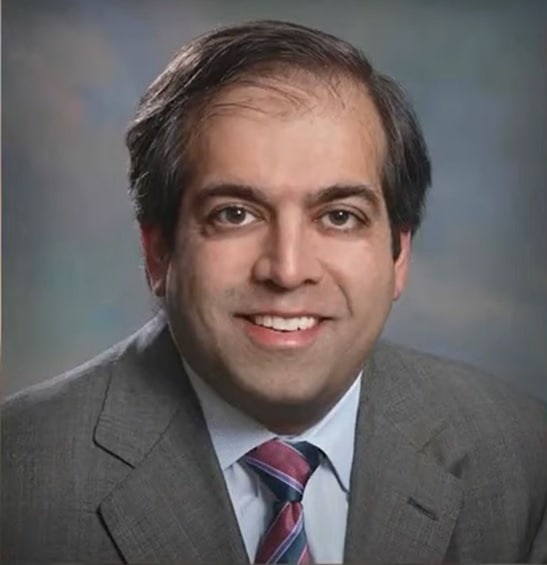U.S.-based Islamist organizations have expressed outrage over the United Arab Emirates’ (UAE) arrest and imprisonment of Islamist Asim Ghafoor, a former spokesperson for three charities — that allegedly supported al-Qaida — and a former defense attorney for Osama bin Laden’s brother-in-law.
The Emiratis detained Ghafoor, a U.S. citizen, during a stopover in Dubai on July 14 and sentenced him to three years in prison and $800,000 in fines for money laundering and tax evasion. His attorney, Faisal Gill, claims Ghafoor knew nothing of the UAE’s charges against him prior to his sentencing.
American Islamist organizations with links to Qatar immediately expressed outrage over the UAE’s actions in an apparent effort to damage the country’s reputation in the eyes of Westerners. The UAE has taken a strong stance against the Muslim Brotherhood, making the criticism from at least some Islamists look like a Qatari-backed effort to smear its enemies.
Democracy for the Arab World Now called the move “politically motivated,” and the Council on American-Islamic Relations lauded Ghafoor as a “civil rights attorney.” And the US Council of Muslim Organizations called it a “kidnapping” of a “human rights advocate.” Still others defend Ghafoor as a crusader for democracy. Some members of Congress called for Ghafoor’s release. But the man described as a defender of democracy has associated with and defended its enemies.
His work for nefarious individuals stretches back into the 1990s when he defended the brother-in-law of Osama bin Laden, Muhammad Jamal Khalifa. FBI records show Khalifa’s deportation for terror charges in Jordan. Khalifa also reportedly ran charitable offices for al-Qaida, a U.S. designated terror organization.
Ghafoor also served as spokesman for Care International (CI), a U.S. charity and an “outgrowth of and successor to al-Kifah Refugee Center.” The 9-11 Commission identified al-Kifah as an extension of bin Laden’s Afghani jihad network, which the commission linked to participation in the 1998 bombings of U.S. embassies in East Africa that killed 224 people. When the Department of Justice sentenced Wadih El Hage to life in prison for his role in the bombings, Ghafoor defended him saying, “El-Hage knew a ton of people in the United States because he lived in Dallas, Texas with his American wife and seven kids. The government wasn’t even interested in him until after the embassy bombings.”
Care International allegedly supported violent jihad and raised funds for jihadists—including over $160,000 to bin Laden’s terror network in Bosnia. Over a six-year period CI, gave over $180,000 to another terror supporting organization for which Ghafoor served as spokesman, the Global Relief Foundation (GRF).
In October 2002, the U.S. Treasury designated GRF for its support and assistance to, “Usama Bin Ladin, the al Qaida Network, and other known terrorist groups.” In 2000, GRF received $18,521 from the Holy Land Foundation, later shuttered by the U.S. government for funneling millions to Hamas. Ghafoor a spokesman for GRF said, “It seems like the government is just trying to manufacture a case while they freeze us. But they’re going to have to give more evidence than that,” he said. “We’re not going to be ensnared in this Bin Laden trap, where everyone is guilty by association. That’s ridiculous.”
Despite Ghafoor’s denial of funding bin Laden, he represented the Al-Haramain Foundation (AHF), which the UN designated the Comoros branch in 2004 as supporting “Al-Qaida, Usama bin Laden or the Taliban.” The U.S. designated parts of the organization in 2004 for al-Qaida ties, and the U.S. Treasury designated AHF in 2008, “for having provided material support to al Qaida, as well as a wide range of terrorists and terrorist organizations.”
Ghafoor’s attorney representing him in the UAE is Faisal Gill, who previously served as a spokesman for the American Muslim Council, the organization led by convicted terrorist Abdurahman Alamoudi. The National Security Agency and FBI surveilled both Ghafoor and Gill for seemingly several years.
Prior to the 2000 presidential election, Ghafoor said in a political debate, “We [Muslims] are here [in the U.S.] not just to be nice to people, not to say great things about people but to bring truth and justice and Islamic ways to this country. . . . you should rule by Islam otherwise you’re a Kafir [unbeliever, non-Muslim.]”
Given Ghafoor’s history, the UAE’s charges against him merit review. Islamist groups in the West are portraying Ghafoor as a noble human rights advocate, but for a man who has worked for three alleged al-Qaida supporting charities, his career needs further scrutiny.
